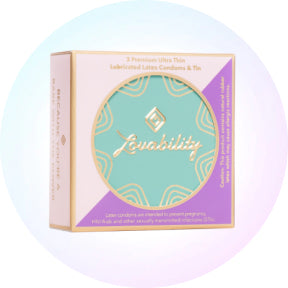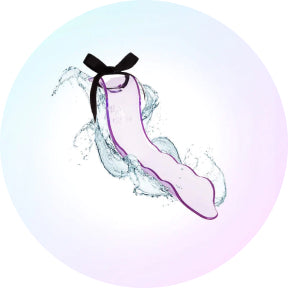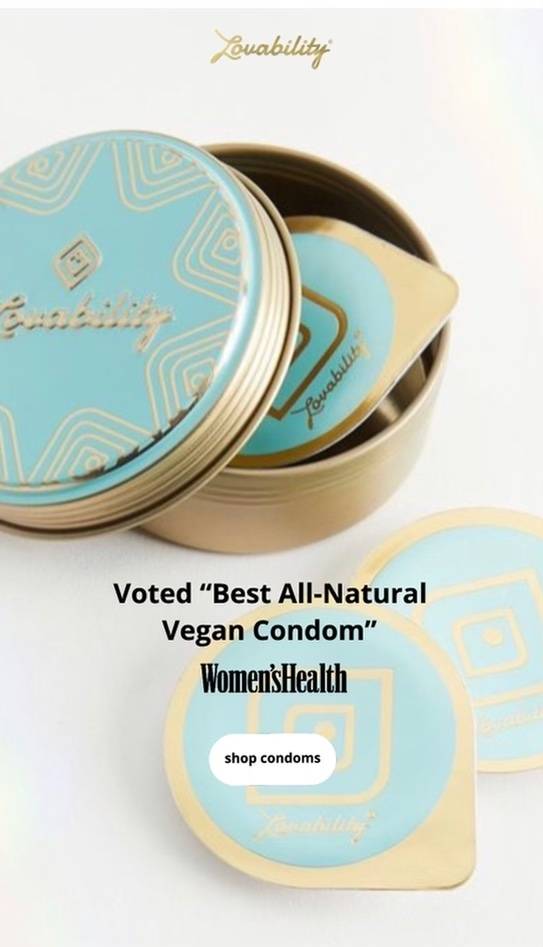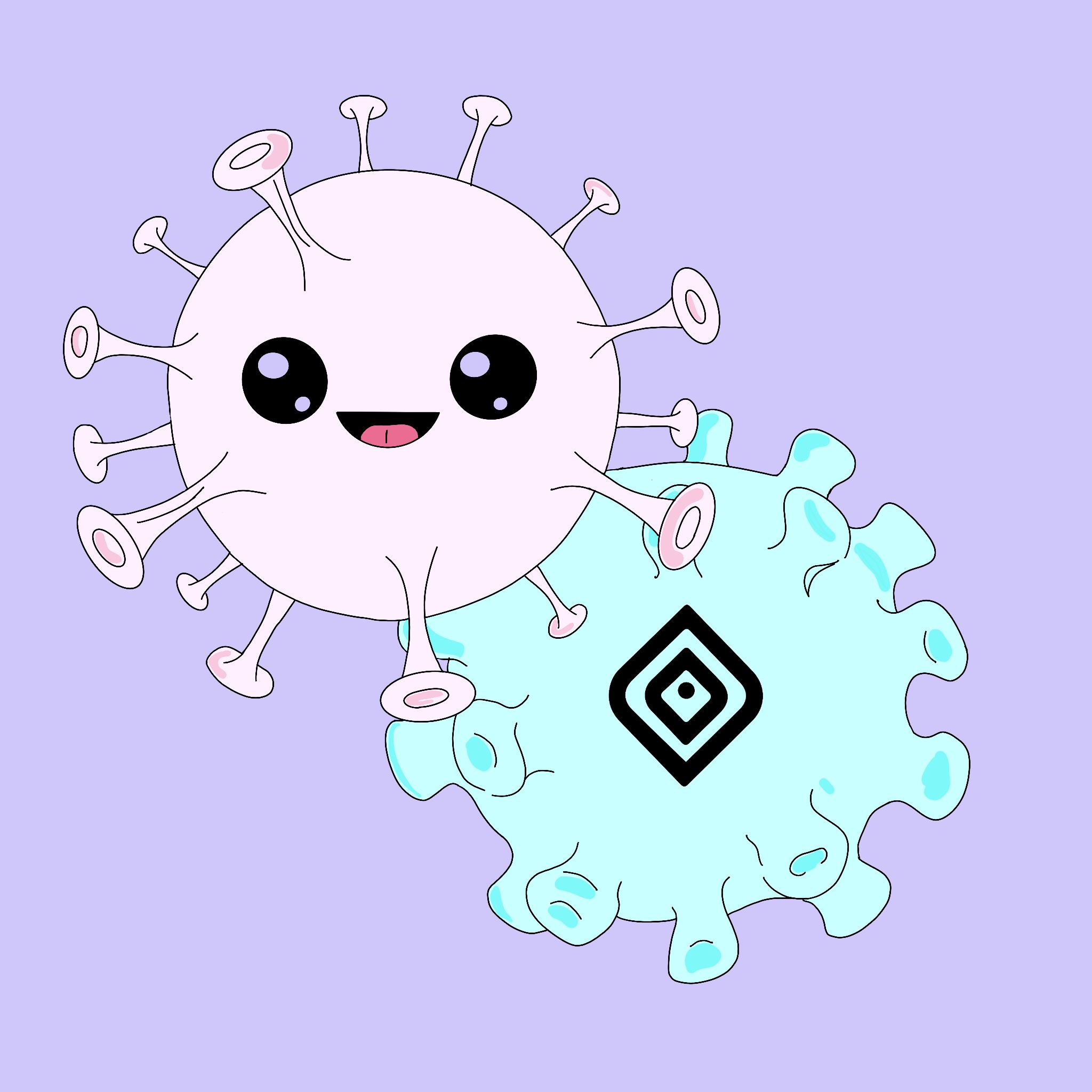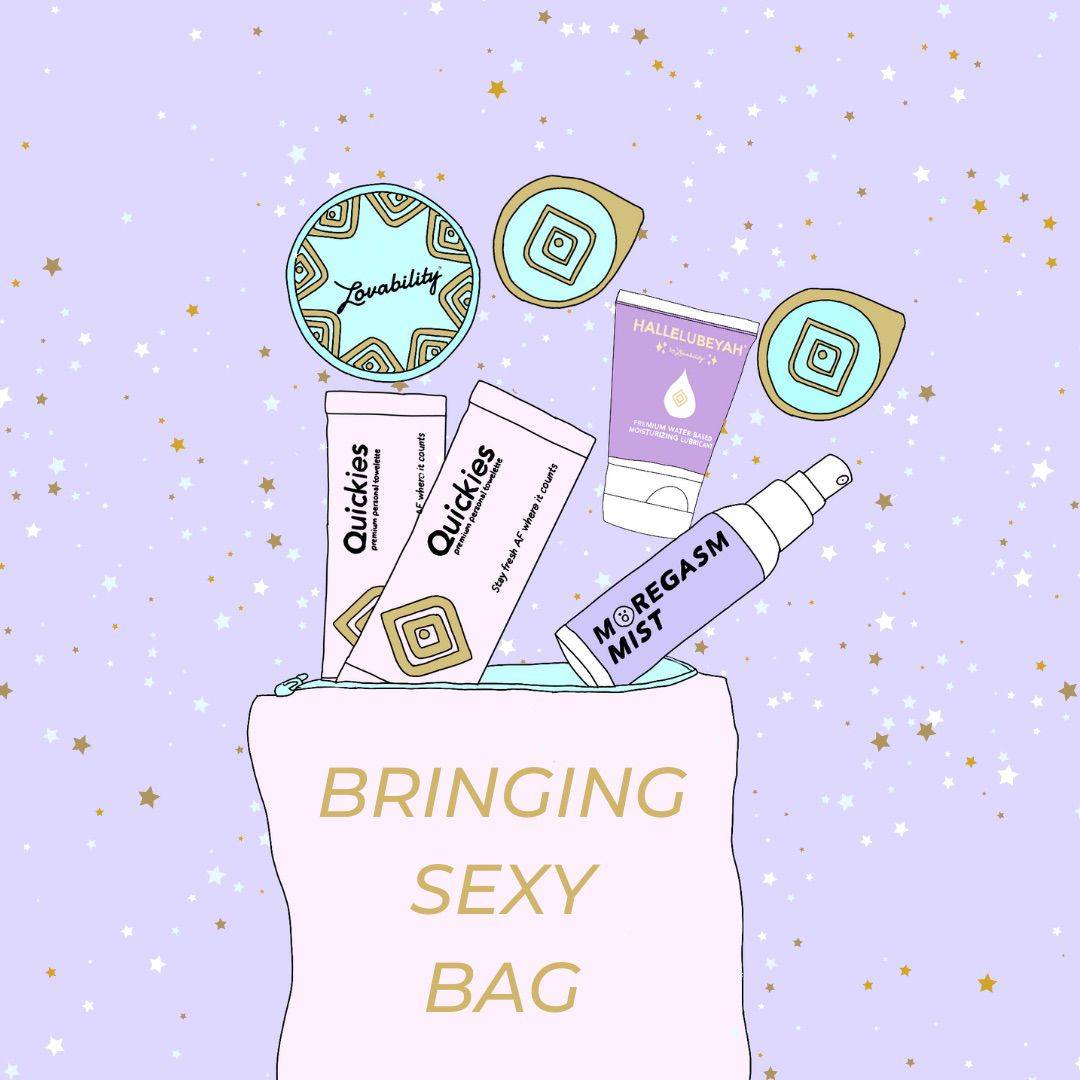Shopping for your next vibrator or picking up condoms for a hot date should be fun. But navigating aisles of products with unfamiliar ingredients that force you to decode labels can quickly turn a sexy errand into a stressful one.

In theory, certifications should be a helpful way to evaluate if a product is safe and effective. But in practice, the plethora of certifications—all of which are regulated by private organizations that have their own set of standards—can be really confusing. And to top it off, some certifications are more reputable than others.
So, how can you determine which labels to look for when you're shopping? And what does it mean when a product isn't certified? Here's a quick breakdown of some of the most common certifications you'll find on sexual products and what they actually mean.
What Does It Mean To Be Certified?
Outside of condoms and lube, the FDA does not regulate sexual health products. So your favorite dildos and do-dads can hit the market without any government approval.

You're not alone if that makes you feel icky. Private certifying organizations were created to fill the gap and give shoppers some guidance on what's safe to use.
When a company is certified, that means an outside organization has reviewed the product and deemed it safe for human use. So rather than just throwing the word "organic" on the label, for example, a company that's gone through the certification process can put a special "certified organic" logo on their products that tell you they've met a specific organization's standards.
Generally speaking, certifications are voluntary, and there's no universal standard that products have to meet in order to receive one. Each organization has different requirements, and some are more stringent than others. In other words, certifications aren't foolproof—but they are important for helping you make informed decisions, especially when the FDA isn't providing guidance.

Types Of Certifications To Consider
Advocating for your body (and your pleasure) goes beyond what goes down in the bedroom. Whether you're shopping online or IRL, taking the time to familiarize yourself with certifications can help you make informed decisions about what goes in and on your body. And that's pretty damn empowering.

Here are a few certifications that are popular in the sexual health space and what they really mean:
Organic: When it comes to our good 'ole pal personal lubricant, certified organic (or made with organic ingredients) is ideal. Because if a lubricant is labeled as organic, it should mean that the ingredients haven't interacted with any chemicals.
Vegan and Cruelty-Free: While the two certifications are often used interchangeably, they actually refer to two different things. A vegan product means it doesn't contain any animal products or byproducts, while a cruelty-free item wasn't tested on animals. Some certifying organizations, like PETA, look to cover both bases.
Fair Trade: Ever wonder where your condoms come from? If you want to be sure that they were made in ethical working conditions, look for a fair trade certification. This means that the workers who made your condoms (or lubricant, or sex toy, etc.) were treated fairly and paid a livable wage for their labor.
B Corp: You want to do good and feel good, so look for products that are manufactured by B Corporations. These are businesses that have been verified by the nonprofit B Lab to meet stringent standards of social and environmental performance, accountability, and transparency. With this certification, you can be sure that your money is going to a company that's actually doing good in the world.
Gynecologist-Tested: Many popular washes and wipes on the market today claim to be gynecologist-tested. While that sounds like a pretty good indicator of safety, it's really nothing more than a marketing tactic. There's no third-party certifying organization that verifies this claim—it's simply something companies can say on their own. Ignore it and focus on the ingredients.
Associations That Certify
The certifications we just talked about are all well and good, but which organization can you actually trust?

Like all things in life, it's really up to you to determine which certifications matter to you and which ones don't. Put on your cute investigator cap and check out the certifying organization's website to learn more about their standards and process. Transparency is always a good sign, so look for organizations that are open about how they certify products and what requirements manufacturers have to meet.
Here are a few certifying bodies you'll likely see:
Leaping Bunny: One of the most popular certifications in the beauty industry, Leaping Bunny certification requires that a product and its ingredients aren't tested on animals at any point during development. [Note: products are exempted from the animal testing restriction when testing on an ingredient is required by a regulatory agency, such as the FDA.]
USDA Organic: The gold standard for organic certifications, the USDA requires that products bearing its label meet the rigorous standards set by the United States Department of Agriculture. Meaning their ingredients haven't been exposed to pesticides, synthetic fertilizers, or ionizing radiation.
Made Safe: A nonprofit organization that, through an internal audit process, assists companies selling household products that are not “toxic” to humans and the environment.
PETA: As we mentioned before, PETA certifies both vegan and cruelty-free products. To receive certification, a company must pledge that neither its products nor ingredients have been tested on animals at any point during development.
Vegan Society, Vegan.org, and Vegetarian Society: These certifying bodies all have different requirements, but the general idea is that products must be free of animal products and byproducts to earn certification. Being free of animal testing is not a part of this certification.
What If My Fav Product Is Not Certified?
Just because a product isn't certified doesn't mean it's a dealbreaker. Getting certified costs money and time, so some small or new companies may not be able to get certified right away. Not to mention that not all products qualify for the popular certifications that a lot of people look for. No organization certifies condoms as organic, for example, so look for other attributes when shopping condoms such as natural ingredients, vegan, sustainable, etc.
So while certifications can be helpful to evaluate and trust a product, there are several other factors to consider when deciding how to shop for body-safe sex toys and essentials:
Natural Ingredients & Body-Safe Materials: Nothing is more important than reading the label to determine whether the ingredients are truly healthy and body-safe. Every product, whether it's for contraception or pleasure, has its own unique set of guidelines and any company selling a product should be fully transparent—from a full list of ingredients and explicit directions for use, to sourcing of its materials and the sustainability of its operations. And if you ask a question and get an evasive answer, that's not a good sign.
Shared Values: Head over to the About page and get to know the company—its founders, its mission—and ask yourself if these are people and values you want to support. There's no shortage of purchasing options out there, so you might as well feel reeeaaaally good about the company you're buying from as well as what's going inside your body.
Partners: Look at the company's partners—all of them. If they sell their products with a natural grocer you trust, for example, you can bet that retailer did their homework to affirm the product is not only worthy of their shelf-space but aligned with their values. Likewise, if the company supports organizations that protect the environment or amplify women's voices, those are actions that transcend marketing jargon.

Knowledge is Sexy - And Powerful
You deserve to feel confident and informed about the products you use, especially when it comes to something as personal as sexual health. So do your research. While certifications are a helpful way to evaluate products, they're not the be-all and end-all. Dig in to the ingredients, ask questions if the FAQs don't address your question, explore the values of the company manufacturing the products as well as the retailer selling them to you.
The more you know, the more empowered you'll be to make the best choices for your body—and that's pretty damn sexy.
About The Author
Emily Blackwood is a freelance journalist committed to answering the plaguing question of what makes us truly happy. Turns out, it's a lot. Her work has been published in SELF, HuffPost, and YourTango. You can learn more here.
___________________________________________________
Medical Disclaimer: The information provided here is intended for educational and informative purposes only and is not intended to serve as medical or professional advice. If you have any concerns or questions about your health, you should always consult with a physician or other health-care professional.


